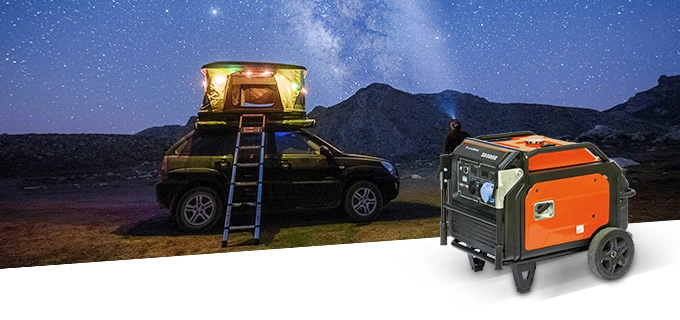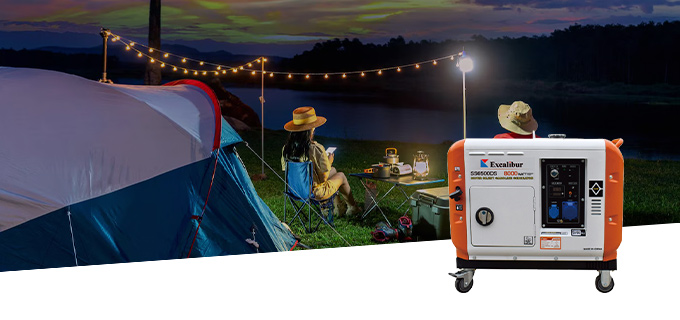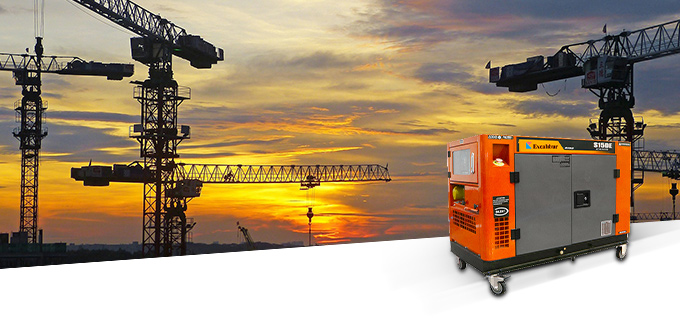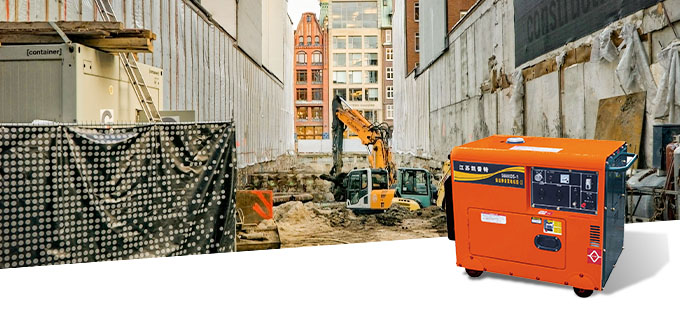In the pursuit of more sustainable and eco-friendly power solutions, inverter generators have emerged as a significant player in the realm of portable electricity. These generators, known for their advanced technology and efficient power production, contribute to environmental sustainability in various ways. This article delves into the eco-friendly features of inverter generators and their role in promoting a greener and more sustainable approach to power generation.
Efficiency and Fuel Economy
Inverter generators are designed with efficiency in mind, offering a notable improvement over traditional generators in terms of fuel economy. The advanced technology utilized in these generators allows them to adjust the engine speed based on the required electrical load. This dynamic adjustment ensures that only the necessary amount of fuel is burned, minimizing waste and reducing carbon emissions.
Clean power output
One of the most important features of inverter generators is their ability to produce clean and stable power. The inverter technology used in these generators regulates the voltage and frequency very precisely, thus producing a power output that is safe for sensitive electronic equipment. This clean power not only protects devices but also ensures that energy is utilized more efficiently, contributing to overall environmental sustainability.
Reduced Carbon Emissions
Inverter generators contribute to the reduction of carbon emissions, a significant environmental benefit. The optimization of fuel consumption, coupled with the cleaner power output, results in lower carbon dioxide (CO2) emissions compared to traditional generators. This makes inverter generators the best eco-friendly option for individuals and businesses.
Quieter operation and reduced noise pollution
In addition to improved fuel efficiency, another major feature of inverter generators is their low noise level. The advanced technology used in these generators enables them to operate at lower noise levels compared to conventional models. Reduced noise pollution is not only beneficial for user comfort but also contributes to a more environmentally friendly and community-conscious power solution.
Parallel Operation for Scalable Power
Eco-friendly power solutions must also be adaptable to varying power needs. Many inverter generators offer parallel operation capabilities, allowing users to connect multiple units for increased power output. This scalability ensures that users can meet their energy demands without over-sizing a single generator, promoting a more resource-efficient and sustainable approach.
Smart Load Sensing for Efficient Power Production
Inverter generators often feature smart load-sensing technology. This capability allows the generator to adjust its power output based on the connected load. When the demand for electricity is low, the generator operates at lower power levels, further enhancing fuel efficiency and minimizing environmental impact.
Use of Environmentally Friendly Materials
Manufacturers of inverter generators are increasingly incorporating environmentally friendly materials in the construction of their products. This includes the use of recyclable materials, reduction of hazardous substances, and environmentally conscious manufacturing processes. These initiatives align with broader sustainability goals and reduce the ecological impact of generator production.
Integration of renewable energy sources
Inverter generators can be complemented with renewable energy sources such as solar and wind. When paired with solar panels or wind turbines, these generators serve as reliable backup power sources, ensuring a consistent power supply during periods of low renewable energy generation. This integration promotes a hybrid approach to power generation, combining the benefits of clean, renewable energy with the reliability of inverter generators.
Compliance with emission standards
Many inverter generators meet stringent emission standards set by regulatory agencies. By meeting or exceeding these standards, these generators contribute to air quality preservation and align with global efforts to reduce the environmental impact of power generation.
Educating Users for Sustainable Practices
Beyond the features of the generators themselves, manufacturers and industry stakeholders play a role in promoting eco-friendly practices. Educating users on proper generator maintenance, responsible fuel consumption, and the benefits of eco-friendly power solutions fosters a culture of sustainability among consumers.
Inverter generators stand at the intersection of technology and environmental sustainability, offering a cleaner and more efficient alternative to traditional power sources. Their eco-friendly features, including fuel efficiency, clean power output, reduced emissions, and quieter operation, position them as key contributors to greener energy solutions. With the growing global emphasis on sustainable practices, inverter generators play a significant role in achieving a balance between the demand for electricity and environmental protection. By adopting these eco-friendly power solutions, individuals and businesses can actively contribute to environmental protection.




